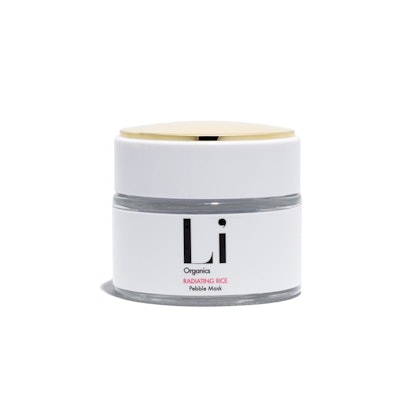
Why Fermented Skincare Products Are Suddenly Everywhere
Grape juice is fine, but wine, some might say, is better. The same logic applies to fermented skincare products. “Like wine has a higher antioxidant capacity than grape juice, fermented [ingredients] are often richer in vitamins, peptides, beneficial enzymes, and probiotics,” Dr. Sejal Shah, a dermatologist and the founder of SmarterSkin Dermatology, tells The Zoe Report. Basically, the process of fermentation takes the original substance to a whole new level — which explains why fermented skincare is suddenly everywhere.
In addition to healthy bacteria, fermentation creates “lactic acid and hyaluronic acid,” according to Geh, and “is helpful in enhancing the production of ceramides — lipids that form the skin’s barrier and help skin retain moisture — and stimulating the production of skin's natural antimicrobial peptides.” You probably recognize all of those as some of today’s most popular skincare ingredients: Lactic acid exfoliates and adds moisture, hyaluronic acid helps cells retain hydration, ceramides (which occur naturally in the skin, too) are essential to barrier function, and peptides keep skin firm and young-looking. With fermentation, you get all four… in addition to the base ingredient’s usual benefits.
“The process of fermentation breaks down complex compounds into simple compounds, potentially allowing the ingredient to be more readily absorbed by the skin and therefore more effective,” Dr. Shah adds. This absorption factor seems to be the one that most resonates with beauty brands — for example, Vintner’s Daughter claims it adds a fermented component to its Active Treatment Essence “to amplify the nutritional impact and feed the skin at a deeper level,” while MARA Beauty says the fermented green tea in its Algae Retinol Oil “allows for better skin absorption.”
All things considered, you can expect a clearer, younger-looking complexion — at least, according to SK-II. The brand's signature ingredient, Pitera, is a fermented yeast blend inspired by the seemingly ageless skin of Japanese sake brewers. "The astounding sight of the wrinkled faces of aged sake brewers contrasting their soft youthful hands remained seared in the memories of the SK-II scientists," SK-II's site reads. "Back in the confines of the laboratory, they surmised that the secret must lie in the yeast that the brewers’ hands were in constant contact with during the sake fermentation process." This hypothesis led to five years of fermentation research, and finally, Pitera.
Dr. Shah adds that fermented ingredients don’t pose any risk to the skin (but, as always, you should do a patch test before applying any new products to your face). The main risk actually lies in the long fermentation process itself. “For our Radiating Rice Pebble Mask, our rice is soaked and undisturbed for 30 days with five-stage filtered water under well-controlled temperature and conditions,” Geh explains. “There’s a risk to fermentation in terms of contamination, so it is important [for brands] to test every batch of any fermented product.” If you’re purchasing fermented skincare from a reputable source, though — like any of the companies listed below — contamination shouldn't be a big concern.

To recap: Fermented skincare delivers a potent dose of probiotics, lactic acid, hyaluronic acid, ceramides, and peptides. And absorbs into the skin more easily. Andpretty much preserves itself. Could you ask for anything more?
Ahead, 12 fermented skincare products as good as a glass of fine wine — for your face.
Shop Fermented Skincare

Radiating Rice Pebble Mask
$80
LI ORGANICS
Li Organics' face mask relies on fermented rice to even out skin tone and add serious glow.
